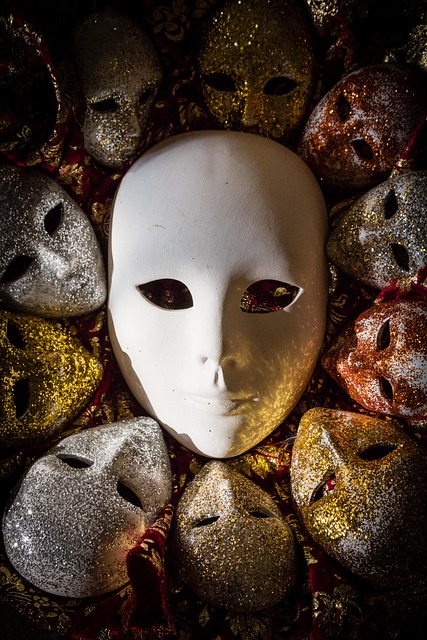
It is no measure of health to be well adjusted to a profoundly sick society. We have lost it, or we have never had it; and, because we do not know how to judge anything, we have been led here and pushed there, beaten up, driven, politically, religiously and socially. We don’t know, but it is difficult to say we don’t know. -Krishnamurti
Good and evil have always been a subject of discussion. Although I largely agree with the quote, I also recognize a significant shift taking place in society. More of us are becoming attuned to who we are, our behavior patterns, and what leaves us feeling unsatisfied and disillusioned in so many ways. Naturally, this will affect us on multiple levels, leading us to reconsider and carefully examine our political views, the social circles we are accustomed to, our diet, and more.
Because of the work I do, and maybe because of God’s will, I’ve had the opportunity to get to know a group of people on a level I wouldn’t wish on anyone throughout most of 2024. Through this experience, I’ve noticed a recurring pattern that might help, in our terms, define what evil is. Ignorance is truly bliss, and after spending extensive periods of time with people who are at what we consider the lowest strata in society, such as crack addicts, alcoholics, schizophrenics, those with bipolar disorder, and so on, I’ve noticed a common thread between them all. Even from a small point, one can completely lose themselves, which is why we often hear things like ‘They sold their soul’ or ‘They’ve lost their mind’, or ‘They’re possessed,’ etc.

Little habits go a long way. Each habit and reaction accumulates over time and eventually becomes instinctive and leads to a recurrent behavior pattern in our personality. All of us can fall victim to these destructive patterns, and for many people, this type of behavior has been so persistently ingrained from trauma that we may not be fully aware of the impulses behind our choices. I am amazed to have witnessed so many similarities between people who are strongly challenged by serious mental illnesses.
And no, I am not talking about stress, depression, anxiety, or the unique and creative ways our minds can sometimes lose groundedness. I am talking about people who walk into a room believing they have just stepped off a flight or who have full-blown conversations with their three children while no one else is around. This is the level of illness I am referring to. We often throw the word ‘crazy’ around, but when you truly see those who have to cope with serious mental illness, it stops being funny like that.
The first time I truly empathized with someone struggling with serious mental illness was when observing them in the bathroom, pacing back and forth in such a painful way that it broke me a little. That whole afternoon and evening, I kept asking myself the same question: How can I unsee what I just saw? But you can’t unsee that kind of thing. These people struggle just like we struggle with physical injuries, except their pain affects their entire being, including their psyche.
Denial, deflection, scapegoating | Nature of evil
People often use different defense mechanisms to avoid facing uncomfortable truths about themselves. From a psychological standpoint, cruelty can arise when these mechanisms are used aggressively, either to protect one’s ego or to shift blame onto others. The impulse of cruelty can find its roots in denial, manifesting as being dishonest with oneself, deflection, and scapegoating.
Rather than consciously confronting uncomfortable truths about ourselves, we resort to cruelty as a way to push our own fears and flaws onto others. This allows individuals to avoid facing their own weaknesses and maintain a false sense of righteousness, even if it means twisting reality to make themselves feel better.
These people famously fabricate an alternate reality, especially one where they assume the role of the victim, and make up the rules about how life is supposed to be. They are rooted in fear and are impatiently driven by the mood of the moment, devoid of any logic, which means a lack of discernment and wisdom. Due to their extremely paranoid and untrustworthy nature, there are pretty much two types of people in the world for them. You’re either on their team or against them.
They are programmed by strong imperatives and become more and more hardened throughout life, especially in terms of how right they are. They are cold-hearted but deeply insecure individuals who will use any tactic, including offensive joking, intimidation, threats, and violence, to instill fear and create terror inside you. Often they will capriciously do so just to get you to pay attention.

Joan of Arc | Defying fear
You might be asking, why am I bringing up Joan of Arc? While she continues to be a testament of faith as an important historical figure, she is also a great example and a relatable one when it comes to our own unique journeys. Joan wasn’t just fighting a war. She was confronting inner doubt, fear, and the constant pressure to abandon what she knew to be true.
Before even going into war, Joan had to convince skeptical men, nobles, clergy, and soldiers that her divine mission was real. Many questioned her sanity, accused her of heresy, and dismissed her as delusional. Yet, she did not give up. This mirrors how we often face doubt from others when we dare to trust our own inner calling, no matter how crazy or absurd it appears to others.
Joan also had to deal with political betrayal, shifting alliances, and even those on her own side who saw her as a threat. Equally, our biggest struggles often don’t come from external enemies but from those we expect to support us. If I were to tell you today that I, like many others, am gifted with a specific purpose, of course, I would be seen as a lunatic by some, especially those closest. But what’s most important is my own relationship with the divine, and to complete and remain devoted to my purpose no matter how it will be perceived now or in the future.
Therefore, selling your soul is not a single grand act but a slow betrayal, each time we lie to ourselves, betray ourselves and others, silence our intuition, or let fear guide our choices in each and every moment. Fear is the true evil, shaping our personalities and behavior patterns, as well as our choices as we interact with every other sentient being that comes along our path.
Joan of Arc’s story is the opposite of cowardice or the act of selling one’s soul. She refused to submit to doubt or conformity even though she was tested tirelessly by much outer influence. She held firm, proving that faith is not just belief in a God but in ourselves and the unseen forces and subjective influences that guide us. True courage is not the absence of fear but the choice to acknowledge it and move forward anyway.
The gift of faith
While some people are blessed with absolute faith, whether because of their own religious upbringing and convictions, others are gifted with tangible enough experiences from the divine itself. These experiences in and of themselves may seem like enough for some, but the journey here is long, and we all know that things can easily be forgotten and dismissed.
Most people struggle with faith and this is a reflection of how closed their hearts remain to their own good. Unconsciously most people go about life rooted in complete fear. For many, important decisions and life choices are driven by this fear, leaving them without a true sense of direction or purpose, haunted by the uncertainty of their destiny.
The most effective way to cultivate faith over fear or love over fear is to have complete faith in God. However, the strength of our faith goes hand in hand with how much we are willing to work and level up to meet God. So obviously, everyone starts somewhere.
In etymology, cultivate and culture share the same Latin root word, colere, which means “to till” “to tend,” or “to care for.” Culture, from a psychological and academic stance, is the cooperation between the self and the ego and it is needed because they speak different languages. The self understands through emotional intelligence, experience, and inner awareness, while the ego through intellect and logic.

Tests & fear
Most of us start with different scriptures and get cultured in the studies of spirituality, religion, etc. These studies are nurtured from within over time and also applied to real life. And as we become students, tests are naturally given. Faith in God requires more than blind faith. It requires a certain level of trust in ourselves. Inner doubt, people rooted in fear, and difficult experiences will often tempt us to lose faith in our knowing or experience of the divine.
God, whether within or beyond, will provide exactly what we need for our growth and greater purpose. Sometimes, we may even get exactly what we want as a form of punishment, while other times, sarcasm and irony become our daily teachers, to learn and cultivate real patience.
So, fear is truly the root thing that can define evil in its truest form. There is an order to things, and that includes our own instinctual psychosomatic responses, impulses, and actions, and the more self-aware we become the more we can cultivate a positive and peaceful attitude in life and with others.

